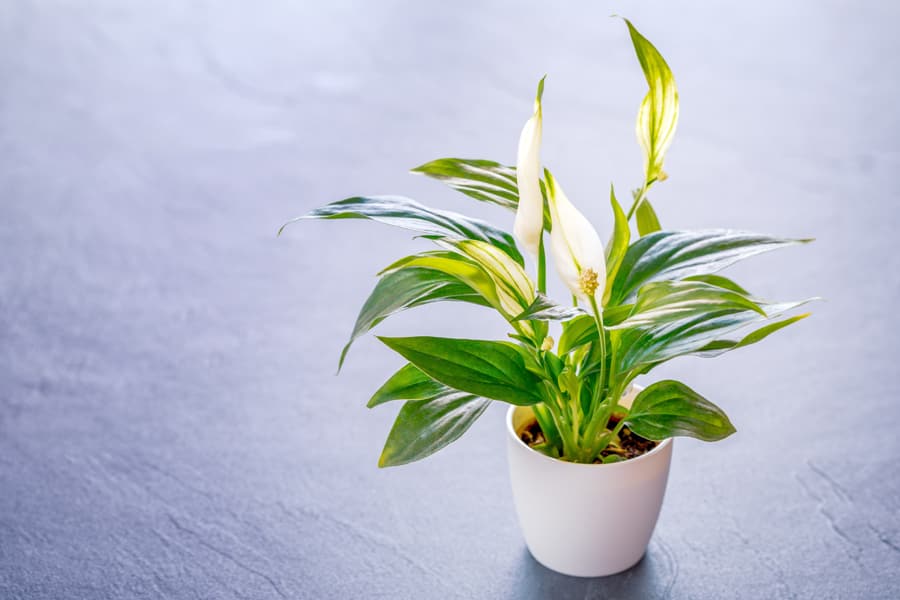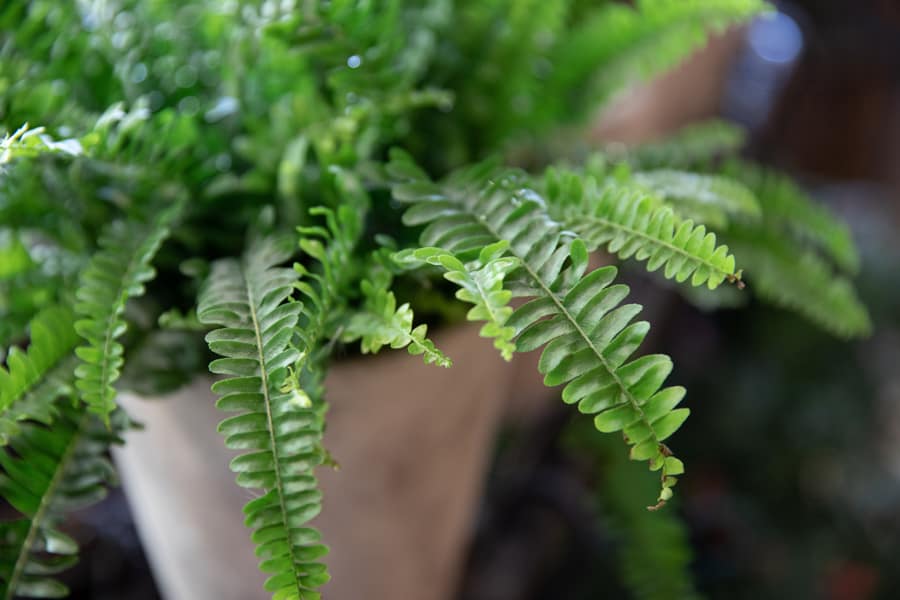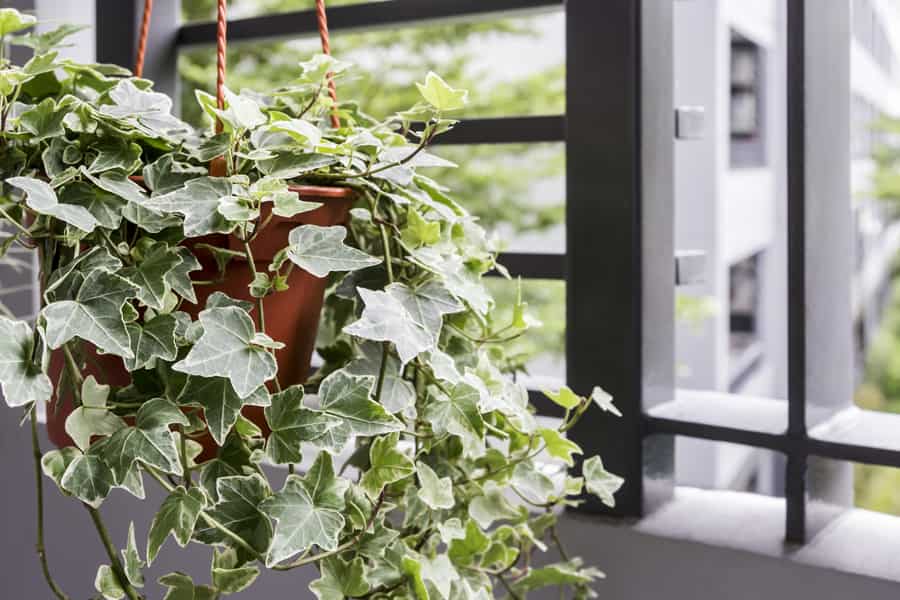- Home
- Leisure & Lifestyle
- Home & Garden
- 8 plants to grow that are good for your health
If you’re thinking about adding some new plants to your home or garden, it might be tempting to pick the plant that looks most impressive – or, if you’re not especially green-fingered, a plant that’s really low-maintenance. But why not think about choosing a plant that can actively boost your health?
Research tells us that having plants in our homes can help reduce stress levels, but there are in fact many other ways plants can have health benefits – from filtering out toxins in the air to having medicinal uses.
To get you inspired, here are eight plants to grow that are especially good for your health.
1. Rosemary

One plant that works just as well indoors as outdoors is rosemary, which can be planted in a pot and left anywhere where it has access to sunlight – whether that’s on a sunny windowsill or in your garden.
Rosemary has a long history of culinary and aromatic uses, but in alternative medicine, it’s also been used to improve memory and focus. New studies suggest there’s truth to these claims, as people who were exposed to the scent of rosemary performed better on memory tests.
The reason rosemary is said to improve brain power is due to a compound called 1,8-cineole, which may cause spikes in the neurotransmitter, acetylcholine.
While rosemary essential oil is quite potent, for a more subtle scent, you might want to think about keeping a rosemary plant in your home office – or anywhere you try to focus and concentrate, to give your brain a little boost.
Plus, rosemary tastes great in cooking, and is also a good source of iron, calcium, and vitamin B6 – vitamins and minerals that are essential for staying healthy.
If this wasn’t enough reason to plant some rosemary, this fragrant plant is also said to have many other powerful health benefits.
For example, it’s thought to improve digestion and is packed with antioxidants and anti-inflammatory compounds, which are believed to boost the immune system and improve blood circulation. It may also protect against brain ageing and macular degeneration, and provide neurological protection by fighting off damage caused by free radicals in the brain. And it’s even believed to slow the spread of certain types of cancer like leukaemia.
2. Peace lily

With its glossy dark foliage and white tubular flowers, the peace lily is an undeniably eye-catching plant – and it has the added benefit of being able to bloom indoors.
The beautiful white flowers reach full bloom in summer, at which point this plant will provide a dramatic focal point for any part of your home. Though, because it’s a flowering plant, it’ll produce pollen, as well as a floral scent, which may not be ideal for people with pollen-related allergies.
Aside from being a beautiful addition to any table, peace lilies are also excellent at improving air quality. They can absorb common household pollutants like ammonia, formaldehyde, xylene, and trichloroethylene – which can be found in things like household cleaners, glue, polishes, and waxes, and can harm your respiratory and immune system.
However, if you have pets, be sure to keep this beautiful plant out of reach of dogs or cats, as peace lilies can be toxic if ingested.
3. Marigolds

If you’re looking for a plant to brighten up your garden, the good news is that it isn’t only indoor plants that can have powerful health benefits. One example of a health-boosting outdoor plant is the marigold (calendula), which makes an ideal addition to most gardens.
Coming in pretty shades of gold, orange, and yellow, these vibrant colours may generate feelings of happiness and confidence. Plus, they can help keep pesky insects away.
Since the Ancient Greek and Roman times, marigolds have also been used for their medicinal, culinary, and cosmetic properties, and today they’re still widely used in alternative medicine.
Marigold tea is said to alleviate cramps and aid digestion, as well as relieve nausea and menstrual pain – and because the flowers have strong antiseptic and antibacterial properties, they can be used to heal wounds and reduce skin inflammation due to conditions like eczema.
4. Boston fern

If humidity is an issue in your home, you might want to invest in a Boston fern. This classic plant is one of the most popular houseplants around – and for good reason.
Not only is its fan-shaped foliage beautiful, but the Boston fern is also said to be a natural humidifier because of its ability to increase air humidity and prevent your air, as well as your skin, from becoming too dry.
Plus, the Boston fern is also described as a ‘phytoremediation powerhouse’, which means it’s another plant that’s excellent at absorbing harmful chemicals and pollutants through its leaves and roots. It’s especially good at removing pollutants like formaldehyde from the air, and making sure the air in your home is purified.
The Boston fern is another plant that does just as well indoors as outdoors, though they prefer indirect sunlight and moist soil.
5. Aloe vera

If you don’t have much experience with plants, you might want to think about growing aloe vera.
As a succulent, aloe vera doesn’t require much watering and is easy to care for – plus, its green fleshy leaves and serrated edges look very striking.
This isn’t a case of style over substance though, as according to NASA’s Clean Air Study, aloe vera is one of the best plants for purifying the air and removing chemicals like benzene, formaldehyde, xylene, and ammonia from our surroundings. These toxins have been linked to adverse health effects like headaches, dizziness, and eye irritation.
But that’s not all. Aloe vera also has many medicinal uses. Due to its soothing, moisturising, and cooling abilities, aloe vera has been used to relieve burns for thousands of years. Simply snap a leaf open and apply the gel inside to your skin (though, for large or deep burns, you should always go to a hospital A&E department!).
There’s also evidence that aloe vera can improve digestive health, clear up skin conditions like acne, and promote oral health. You can even use it to make healthy smoothies and juices! Why not try this aloe vera smoothie recipe from Feel Good Foodie?
6. Citronella grass

Citronella (or lemon) grass is another great plant for your garden, where its zesty scent can add a pleasant aroma.
Citronella has been used for thousands of years as an insect repellent, so if you’re bothered by biting bugs during the warmer months, it’s a good choice.
If you plant it beside walkways, you’ll repeatedly release the fragrance as you brush past them, which will serve as a regular dose of insect repellent. Do be careful if you have pets, though, as citronella is toxic to dogs and cats if ingested.
Aside from warding off biting insects, citronella has several other health benefits. It has antifungal properties that can weaken or even destroy certain types of fungi that can cause health problems.
Research also suggests that citronella can help treat infections and aid wound healing, which may be particularly helpful for people with diabetes, as wounds often heal more slowly with this condition.
Finally, citronella has a naturally uplifting scent which can have both a relaxing and a stimulating effect when inhaled.
7. Spider plant

Another plant that’s great at removing pollutants is the spider plant – which is, luckily enough, another plant that requires very little care.
A spider plant only needs to be watered once a week, grows in all types of soil, and needs little light. Plus, with its sweeping leaves it makes a great hanging plant – and because it loves humidity, it’s perfect for a steamy bathroom.
One specific type of spider plant— the chlorophytum comosum — can absorb 90% of formaldehyde and carbon monoxide from the air, which are two chemicals found in cigarette smoke. Formaldehyde is also found in things like paper bags, tissues, paper towels, and napkins, as well as construction materials and carpets.
Some varieties of spider plant also produce more chlorophyll than other houseplants. This means they release more oxygen, which may improve breathing quality. You might want to keep a spider plant in your bedroom to purify the air while you sleep.
8. English ivy

If you’re on the lookout for a low-maintenance, impressive-looking plant, you might want to think about growing English ivy.
Perfect as a hanging plant in a bedroom or living room, English ivy prefers its soil drier rather than too moist, so if you’re someone who often forgets to water your plants, it’s a wise choice!
Plus, if you worry about having mould in your home, this is likely the plant for you as it can remove up to 94% of airborne mould particles that trigger allergies. Aside from looking beautiful and eliminating mould, the English ivy also has several powerful medicinal properties.
In Ancient Greece, Hippocrates used ivy as an anaesthetic and to reduce swelling. Nowadays, herbalists use the plant to treat a variety of respiratory conditions including asthma, bronchitis, and chronic obstructive pulmonary disease (COPD).
Its anti-inflammatory, antioxidant, antiviral, and antiarthritic properties also mean that it’s used to treat inflammation and arthritis – and if that wasn’t enough reason to hang one up, English ivy is also one of the best houseplants at filtering out pollutants from the air.
Final thoughts...
While getting the right vitamins and minerals and doing enough exercise is essential for staying healthy, we shouldn’t discount the power of plants when it comes to boosting our health.
Not only can plants reduce stress and brighten our mood, but they can also play a big part in purifying the air, thereby improving sleep quality and breathing. Plus, many plants can also be used to treat different health conditions, from supporting digestion to helping heal wounds.
And more good news is that some of the plants that are best for us are also some of the lowest maintenance plants around – so you don’t have to be especially green-fingered to take advantage of the health-boosting properties of plants!
For more health-boosting plant ideas, you might want to check out our article; 8 superfoods that you can grow from home. Or, why not read our garden checklist ideas for May?
Do you grow any of these plants – or are you inspired to get planting today? Or do you have any of your own suggestions for plants to grow that are good for your health? We’d love to hear from you in the comments below.
Selene Nelson is an author, freelance journalist, and lifestyle writer for Rest Less. After graduating from the University of Sussex with a degree in English Literature, Selene began contributing to many major newspapers and websites, and has written for the BBC, The Sunday Times, The Independent, Town & Country, and HuffPost. Her specialist subjects include food, travel, and health, though she enjoys writing about a wide range of topics (e.g. her two books are about veganism and psychopathy, respectively!). She enjoys cooking (particularly pasta and Asian noodle soups), reading, travelling, hiking, attempting to keep fit, and watching animal videos on YouTube.
* Links with an * by them are affiliate links which help Rest Less stay free to use as they can result in a payment or benefit to us. You can read more on how we make money here.
0% APR finance on the UK's No.1 Solar System
Join thousands of happy customers and get a fixed online price now.
Enjoy expert installation in 2-3 weeks by the best-qualified engineers, with low-cost monthly payments and the best rates available.
